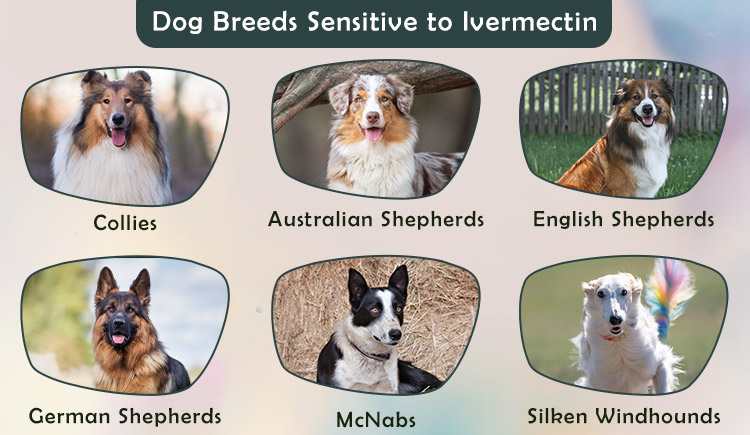
You might have seen ivermectin-containing formulations on the pharmacy shelves or have been prescribed ivermectin for your pet. Ivermectin is commonly used in cats and dogs for protection against various diseases, such as heartworm prevention, ear mite infestation, and intestinal parasites. However, it is important to note that while ivermectin can be highly effective in treating these conditions, it should only be administered under the guidance of a veterinarian.
This blog will share everything you need to know about ivermectin before administering it to your dog or cat. We will discuss its uses, safety, side effects and much more. So, stay tuned!
Ivermectin Overview
Ivermectin Brands:
Functional Classification: Antiparasitic
Structural Classification: Macrocyclic Lactone
Mode of Action: Ivermectin acts by causing neurologic damage to the parasites, resulting in paralysis and, finally, death of the parasite. It disrupts the glutamate-gated chloride ion channels in parasites, leading to hyperpolarization of their nerve cells.
Therapeutic Dosage:
A. HeartGard Plus
Ivermectin Dosage:
For small dogs (up to 25 lb): 68 mcg once every month.
For medium dogs (26 to 50 lb): 136 mcg once every month.
For large dogs (51 to 100 lb): 272 mcg once every month.
Use: Prevents heartworm disease. Also, treats and controls ascarids and hookworms.
B. ValuHeart
Ivermectin Dosage:
For small dogs (up to 22 lb): 60 mcg once every month.
For medium dogs (23 to 44 lb): 120 mcg once every month.
For large dogs (45 to 88 lb): 240 mcg once every month.
Use: Provides 1 month protection from heartworm disease.
C. Nuheart
Ivermectin Dosage:
For small dogs (up to 24 lb): 68 mcg once every month.
For medium dogs (25 to 50 lb): 136 mcg once every month.
For large dogs (51 to 100 lb): 272 mcg once every month.
Use: Prevents heartworm disease.
Uses of Ivermectin in Pets
Ivermectin is being widely used in different forms to protect against various illnesses. Have a look:
- It is mainly useful in the prevention of heartworm disease in dogs and cats.
- It is also used as an off-label drug to treat a variety of internal and external parasitic problems in cattle, sheep, horses, swine, dogs, and cats, such as mites (ear mites, demodectic scabies, and scabies), intestinal parasites (roundworms and hookworms), and capillariasis.
- It is available in different formulations, such as oral solution, chewable, intravenous, topical, paste, tablet, etc.
- It is important to note that ivermectin should only be used when prescribed by a veterinarian. Using it without consulting a vet can put your beloved pet at risk.
Side Effects of Using Ivermectin
Though ivermectin is considered safe for use in pets, in the event of an overdose, it can cause moderate to severe side effects such as vomiting, tremors, disorientation, dehydration, slow heart rate, hypothermia, lethargy, etc.
Additionally, in pets infected with heartworms (microfilaria stage), a shock-like reaction may be caused by the dying microfilaria larvae. It may cause lethargy, vomiting, hypothermia, etc. This is why dogs tested positive for heartworm larvae must be observed for at least 8 hours after administering any ivermectin formulation. Therefore, it is necessary not to exceed the dosage recommended by the veterinarian.
Sensitivity to Ivermectin
Ivermectin may cause sensitivity reactions in certain dog breeds. Dogs sensitive to ivermectin may exhibit symptoms of neurotoxicity, which include muscle tremors, lack of coordination, seizures, blindness, and even death.
Dogs with a genetic mutation (the MDR1 gene mutation) mainly show such sensitivity. In normal dogs with the MDR1 gene, ivermectin is excreted and eliminated using the p-glycoprotein. However, in dogs with the MDR1 gene mutation, the p-glycoprotein is unable to effectively eliminate ivermectin from the body, leading to a buildup of the drug and causing neurologic effects.
The MDR1 gene mutation is commonly observed in the following dog breeds:

It is advised only to use ivermectin when prescribed by a veterinarian. The vet can run a simple genetic test to check whether your dog is MDR1 gene-deficient. Administering ivermectin to an MDR1 gene-deficient dog can be lethal.
Safety Tips for Use of Ivermectin
- It should only be used when prescribed by a vet.
- It should not be administered to pets with known hypersensitivity or allergy to the drug.
- It should not be used on heartworm-positive dogs without the supervision of a veterinarian.
- The dog must be tested for heartworms before starting with ivermectin treatment.
- It should be used with caution, after vet consultation in breeds suspected of MDR1 gene mutation.
- Consult a vet immediately in cases of sensitivity or overdose reactions.
Also, Read About – Everything you need to know about Heartgard Plus
Bottom Note
Ivermectin is a safe and effective drug to prevent heartworm disease and also serves as an extra-label drug for various parasitic infections in pets. It should only be used with your vet’s advice and guidance to ensure the safety and well-being of your pet.

